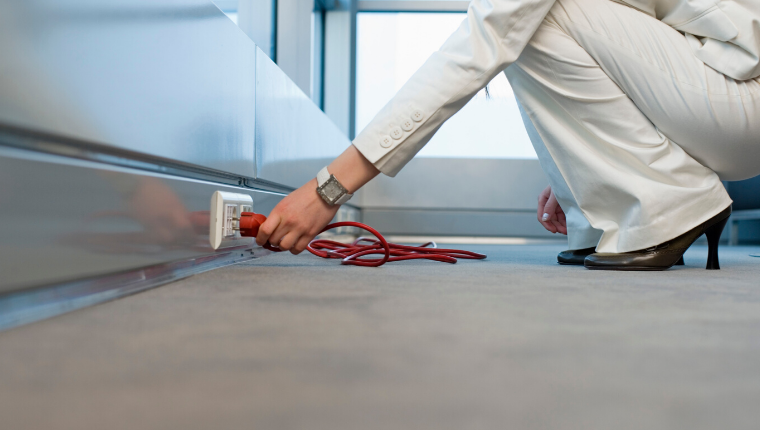Home Office Safety and Security Week
January 1, 2020 | by BMI Staff
Those who work from home face a unique set of challenges. Obligations such as developing fire prevention plans and avoiding workplace injury suddenly fall on your shoulders when you decide to take that entrepreneurial leap. Many of the issues that fall under the safety and security umbrella may not immediately come to mind for those who have recently made the switch to an at-home work environment. Check out these helpful tips for keeping yourself and your information protected.
Radon testing
In addition to this holiday dedicated to the safety of home offices, January is Radon Action Month. Radon is a leading cause of lung cancer and, like carbon monoxide, has no odor. Take action in your home against this silent killer, and purchase a radon test kit. These reasonably priced tests will only require setting it in the room you are testing and leaving it for a set period of time. Once the testing is complete, read the test’s instructions to find where you will send the test to receive the results.
Childcare
When you decided to start your own business or work your day-job from home, more time with your kids may have been a leading factor in the decision. However, young children require undivided attention, as does your work. If you are struggling to split your time and are still leaving patches of time in your day when the kids are unsupervised, invest in some help during the day. This might also become a key selling point when hiring an in-home assistant who also has children.
Fire plan
Home offices are hotspots for electronics, cords, and wires—all of which carry a large risk of fire. Coordinate a fire evacuation plan for all household members, and organize cords so that they are not tangled or placed near heated elements. You can purchase a cord-containing device from an office supply store. Additionally, make sure to install and regularly change the batteries in an office smoke detector.
Cyber Security
Home offices are a frequent target for online hackers and thieves, as many of them are not able to budget for cybersecurity. If you haven’t heard it yet today, use a different password for everything. Change the default password any time one is provided to you, and use at least 8 characters. Random passwords are always better than easily-guessed number sequences and personal information. Make sure to also keep your home network secure by performing these tasks:
- Remove unnecessary apps from your home network device. Always disable your webcam when it is not in use.
- Set up automatic updates.
- Install antivirus software.
Insurance
To protect yourself from the above risks and more, make sure your home office is properly covered by insurance. A standard homeowner policy will likely not include all of the coverages you need in a work-from-home scenario. Contact your agent and inform him or her of your business processes. Be as specific as possible about what your business accomplishes and who you employ to help you. When it comes to your family’s income, you can never be too safe.









